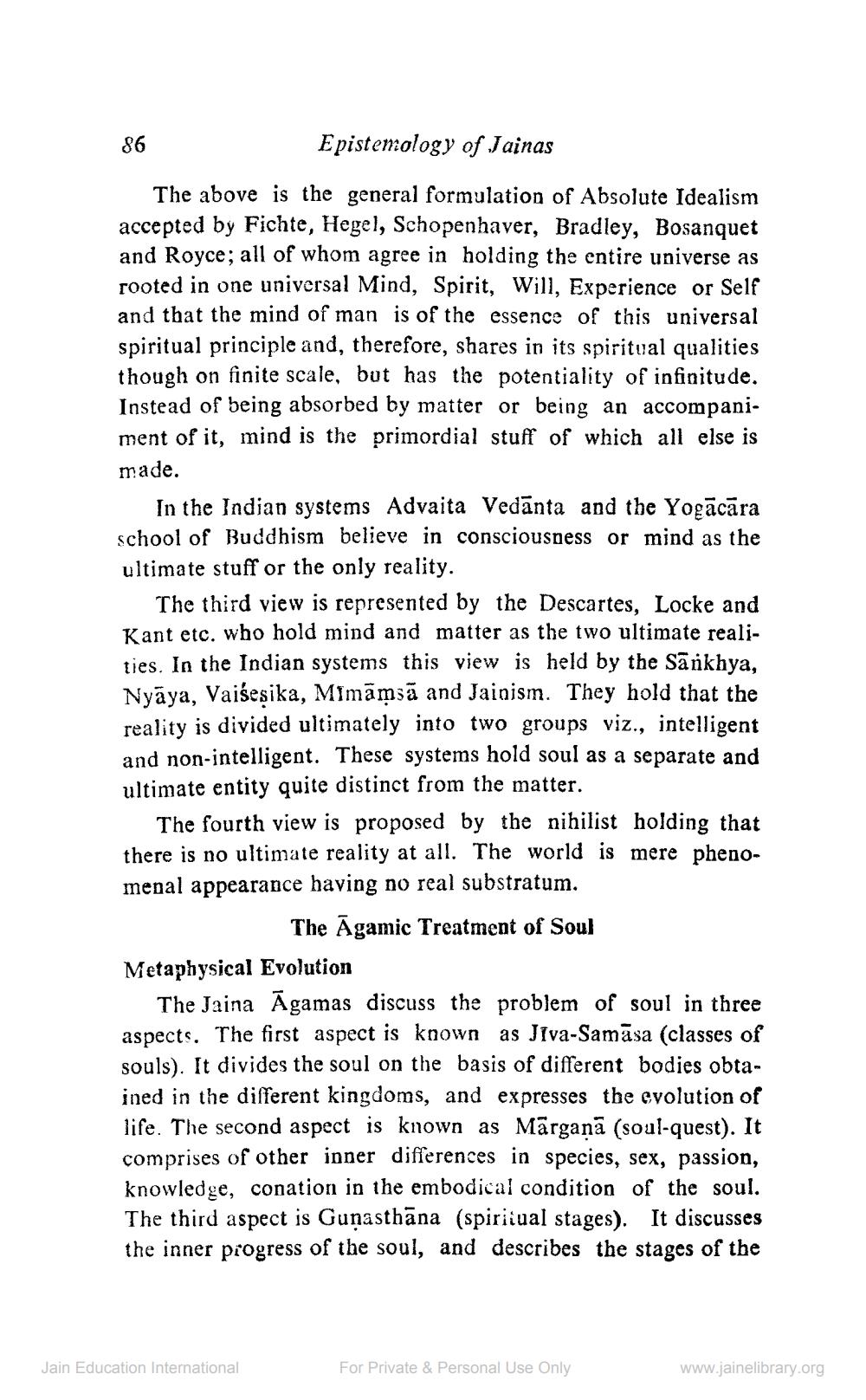________________
86
Epistemology of Jainas
The above is the general formulation of Absolute Idealism accepted by Fichte, Hegel, Schopenhaver, Bradley, Bosanquet and Royce; all of whom agree in holding the entire universe as rooted in one universal Mind, Spirit, Will, Experience or Self and that the mind of man is of the essence of this universal spiritual principle and, therefore, shares in its spiritual qualities though on finite scale, but has the potentiality of infinitude. Instead of being absorbed by matter or being an accompaniment of it, mind is the primordial stuff of which all else is made.
In the Indian systems Advaita Vedānta and the Yogācāra school of Buddhism believe in consciousness or mind as the ultimate stuff or the only reality.
The third view is represented by the Descartes, Locke and Kant etc. who hold mind and matter as the two ultimate realities. In the Indian systems this view is held by the Sankhya, Nyāya, Vaišesika, Mimāmsā and Jainism. They hold that the reality is divided ultimately into two groups viz., intelligent and non-intelligent. These systems hold soul as a separate and ultimate entity quite distinct from the matter.
The fourth view is proposed by the nihilist holding that there is no ultimate reality at all. The world is mere phenomenal appearance having no real substratum.
The Āgamic Treatment of Soul Metaphysical Evolution
The Jaina Āgamas discuss the problem of soul in three aspects. The first aspect is known as Jiva-Samāsa (classes of souls). It divides the soul on the basis of different bodies obtained in the different kingdoms, and expresses the evolution of life. The second aspect is known as Mārganā (soul-quest). It comprises of other inner differences in species, sex, passion, knowledge, conation in the embodical condition of the soul. The third aspect is Gunasthāna (spiriiual stages). It discusses the inner progress of the soul, and describes the stages of the
Jain Education International
For Private & Personal Use Only
www.jainelibrary.org




